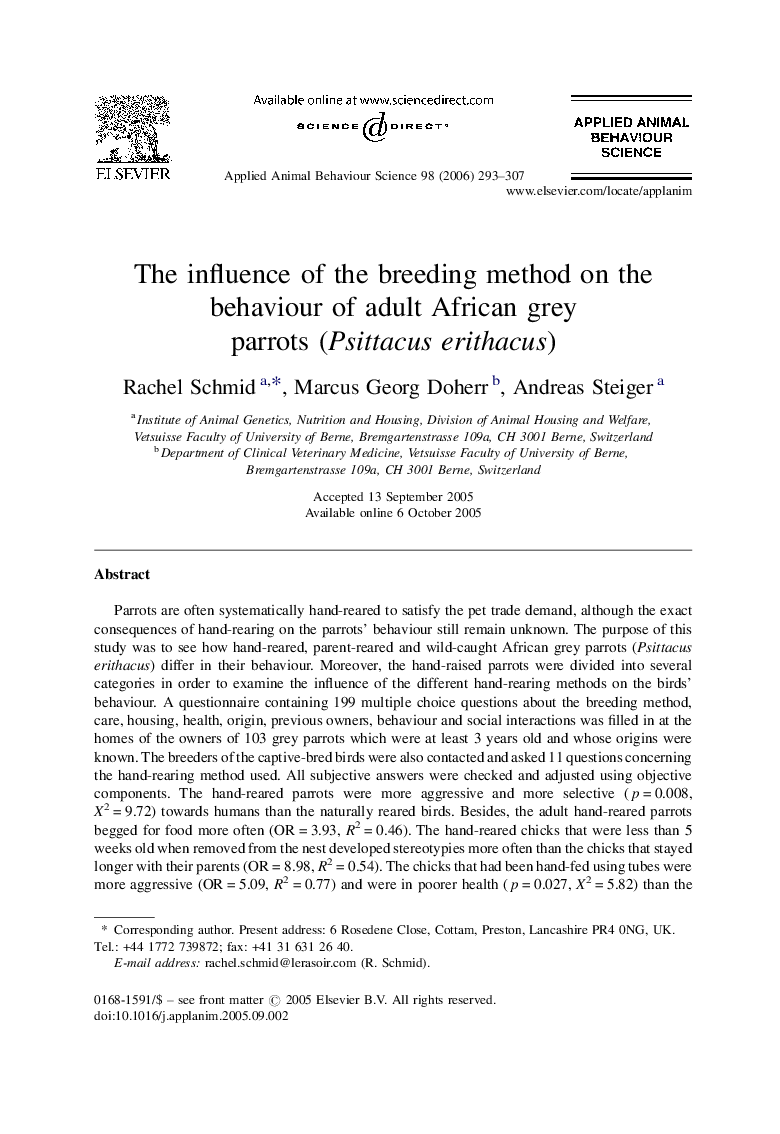| Article ID | Journal | Published Year | Pages | File Type |
|---|---|---|---|---|
| 4524263 | Applied Animal Behaviour Science | 2006 | 15 Pages |
Parrots are often systematically hand-reared to satisfy the pet trade demand, although the exact consequences of hand-rearing on the parrots’ behaviour still remain unknown. The purpose of this study was to see how hand-reared, parent-reared and wild-caught African grey parrots (Psittacus erithacus) differ in their behaviour. Moreover, the hand-raised parrots were divided into several categories in order to examine the influence of the different hand-rearing methods on the birds’ behaviour. A questionnaire containing 199 multiple choice questions about the breeding method, care, housing, health, origin, previous owners, behaviour and social interactions was filled in at the homes of the owners of 103 grey parrots which were at least 3 years old and whose origins were known. The breeders of the captive-bred birds were also contacted and asked 11 questions concerning the hand-rearing method used. All subjective answers were checked and adjusted using objective components. The hand-reared parrots were more aggressive and more selective (p = 0.008, X2 = 9.72) towards humans than the naturally reared birds. Besides, the adult hand-reared parrots begged for food more often (OR = 3.93, R2 = 0.46). The hand-reared chicks that were less than 5 weeks old when removed from the nest developed stereotypies more often than the chicks that stayed longer with their parents (OR = 8.98, R2 = 0.54). The chicks that had been hand-fed using tubes were more aggressive (OR = 5.09, R2 = 0.77) and were in poorer health (p = 0.027, X2 = 5.82) than the birds that had been fed using syringes or spoons. Wild-caught parrots picked their feathers more often (OR = 2.59) had poorer health (p = 0.006, X2 = 7.51) and had developed phobic behaviours more often (OR = 2.90, R2 = 0.29) than parent-reared or hand-raised birds. Overall, our results show that the breeding method has an obvious influence on the behaviour of grey parrots. Hand-reared parrots tended to become more problematic once adult than parent-bred and wild-caught birds. Nevertheless, some methods used to hand-raise chicks should be more often applied as they seemed to have fewer consequences on the birds’ adult behaviour, such as spoon- or syringe-feeding, a long stay in the nest with the parents and less social contact with human beings during hand-rearing.
